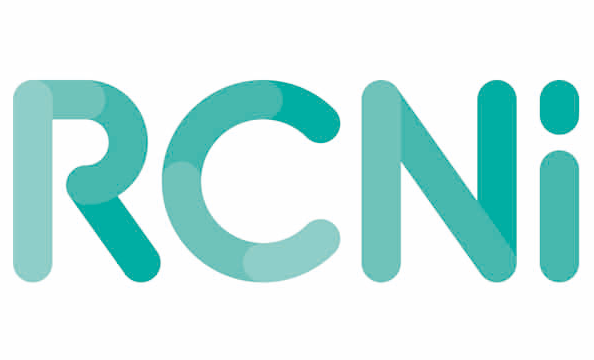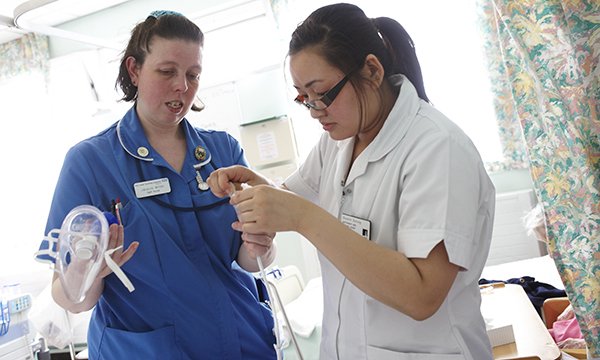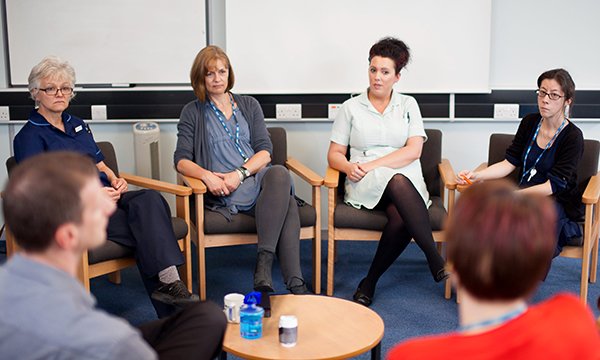Evidence and Practice

Strategies to attract school-leavers to nurse education programmes: an integrative literature review
Exploring the effects of the COVID-19 pandemic on nurse managers
The role of communication in effective nurse leadership and patient care
Clinical
Strategies to attract school-leavers to nurse education programmes: an integrative...
Why you should read this article: • To recognise the importance of increasing the uptake by school-leavers of undergraduate nurse education programmes • To learn about various types of strategies that have been used to attract school-leavers into nursing studies • To identify factors and barriers that should be considered when developing educational strategies to attract school-leavers The shortfall of nurses in the UK has led to concerns that there are insufficient staff to ensure safe and high-quality care. To address this shortfall, one group to focus on for recruiting nursing students is school-leavers. This article reports on an integrative literature review that was conducted to explore the educational strategies used to attract school-leavers to undergraduate nurse education programmes. The review identified that a variety of educational strategies were used, and all of the included studies reported positive effects on school pupils’ intention to undertake nursing studies. These strategies often included interactions with nursing staff and/or nursing students, as well as observing and practising clinical skills, for example via simulation. However, most participants likely had a pre-existing interest in healthcare or nursing, the interventions were delivered predominantly to young women, and the included studies lacked longer-term follow-up. This highlights a need to conduct further research to assess the longitudinal impact of recruitment strategies aimed at broader audiences.
Exploring the effects of the COVID-19 pandemic on nurse managers
Why you should read this article: • To gain an understanding of nurse managers’ experiences of the COVID-19 pandemic • To appreciate that fear, related to fear of infection and information overload, was a major issue for nurse managers during the pandemic • To consider adopting already-established COVID-19 guidelines to support effective infection control procedures and communication in future pandemics Background : Research shows that front-line nurses’ workload and stress levels increased during the coronavirus disease 2019 (COVID-19) pandemic, however, there is little research of these factors in relation to nurse managers. Previous research undertaken in Austria found that some nurse managers working in nursing homes undertook clinical as well as managerial functions during the pandemic, a double burden that could have increased their stress levels and have had adverse psychological, physical and social consequences. Aim : To investigate the effects of the COVID-19 pandemic on nurse managers’ workload, perceptions of teamwork and stress levels, and the physical, psychological and social consequences of working during the pandemic. Method : A cross-sectional design was used. Respondents (n=238) were sent an online questionnaire during the second wave of the pandemic (which in Austria was November 2020 to March 2021) containing questions on demographics and fear of infection, their current workload compared with pre-pandemic workload, their perceptions of the influence of the pandemic on teamwork, their levels of stress measured using the Perceived Stress Scale (PSS), and the physical, psychological and social consequences of working during the pandemic. Results : Most respondents (95%) had to undertake more or much more work than usual during the pandemic, while just over half (52%) perceived that the influence of the pandemic on teamwork had been positive throughout or partially positive. Overall, the respondents’ level of stress was moderate, as measured by the PSS. Around 28% of respondents were afraid of infecting someone other than themselves, notably their families, employees and patients. Fear for themselves, their families and their patients or residents were commonly reported psychological consequences of working during the pandemic, while confusion due to information overload was the second most commonly reported psychological consequence. Conclusion : Comparing results with previous research is difficult due to the lack of research of nurse managers’ experiences of the pandemic. Fear appears to have been a major issue for nurse managers during the pandemic, particularly in relation to infection and information overload. This emphasises the need for healthcare organisations to focus on the mental health and well-being of nurse managers, as well as front-line staff, during and after crisis situations such as a pandemic. Organisations may consider reworking and adopting already-established COVID-19 regulations, schedules and local guidelines, particularly in terms of communication and infection control, which could help to reduce nurse managers’ fear in future crisis situations.
The role of communication in effective nurse leadership and patient care
Mastering verbal and non-verbal communication to fully understand patients’ needs
Relationship between nurses’ workplace behaviour and ethical leadership in managers
Ethical leadership by managers is a significant determinant of nurses’ behaviour in the workplace
A research internship scheme for nurses and its wider implications for clinical managers
Managers should help enable the development of a nursing and midwifery workforce engaged with research
Mapping ward managers’ core competencies using the Balanced Scorecard model
A strategic map of the role can help measure performance and provide a benchmark to improve competencies
CPD articles
Understanding and investigating potential problematic behaviour towards colleagues
Nurse managers should adopt a stepped exploratory approach using a sensitive exploratory process
Developing a talent management support network for nurses and midwives
How to identify and nurture talent in your team
How to develop your ward leadership skills further
A look at different leadership models to help nurses develop ward leadership
Developing a leadership programme for junior nurses
Understand the importance of organising professional development for junior nurses
Supporting newly qualified nurses to develop their leadership skills
Enhance your knowledge of leadership styles, traits and characteristics
Using data analytics to enhance quality improvement projects
Data analytics in healthcare can enhance the effectiveness of quality improvement projects
How to
How to design and deliver a small group teaching session
A session should include activities constructively aligned to the aims and intended learning outcomes
How to organise and run Schwartz rounds
Group-based reflection can support the emotional, social and ethical aspects of caregiving
How to undertake structured clinical reflection
Practical guidance for nurses on how to undertake reflection
How to undertake annual appraisals and ongoing performance reviews
Enhance your knowledge of how to structure appraisals and performance reviews
Practice question
How can I create a culture where staff resolve and learn from complaints?
The ASSIST model of communication can help resolve complaints swiftly
How can I use my leadership skills to champion innovation?
Good leadership when practising innovation is at the core of quality patient care
How should nurse managers respond to medicine administration errors?
A skilled response can enourage a culture of safety, openness and positivity
How can I recognise and support staff with compassion fatigue?
Identifying the signs and supporting individuals and teams to increase emotional resilience
How can critical thinking make me a better nurse?
Critical thinking can help nurses provide excellent care and improve patient well-being



















